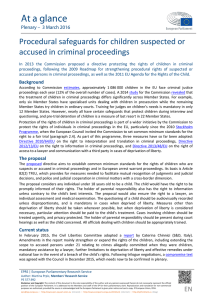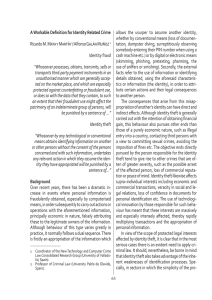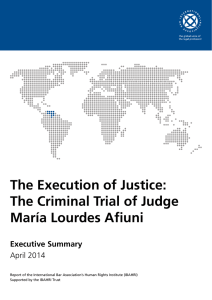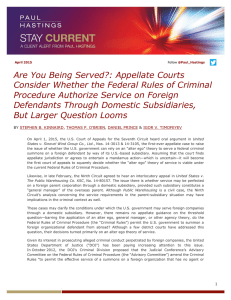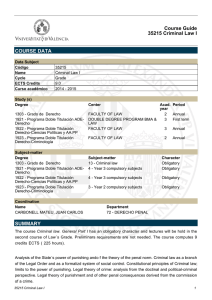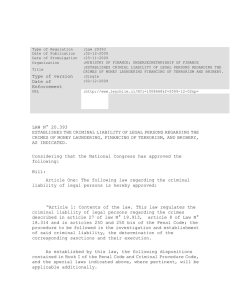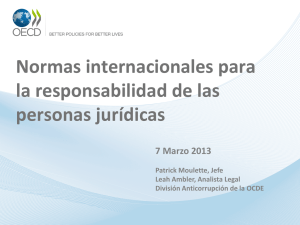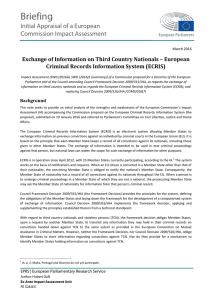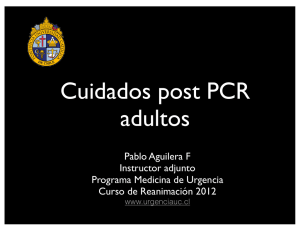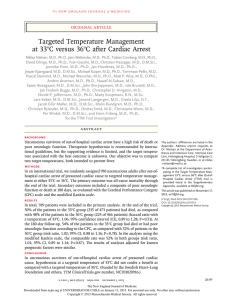„Effective Criminal Defence in Eastern Europe” Ed Cape Zaza
Anuncio
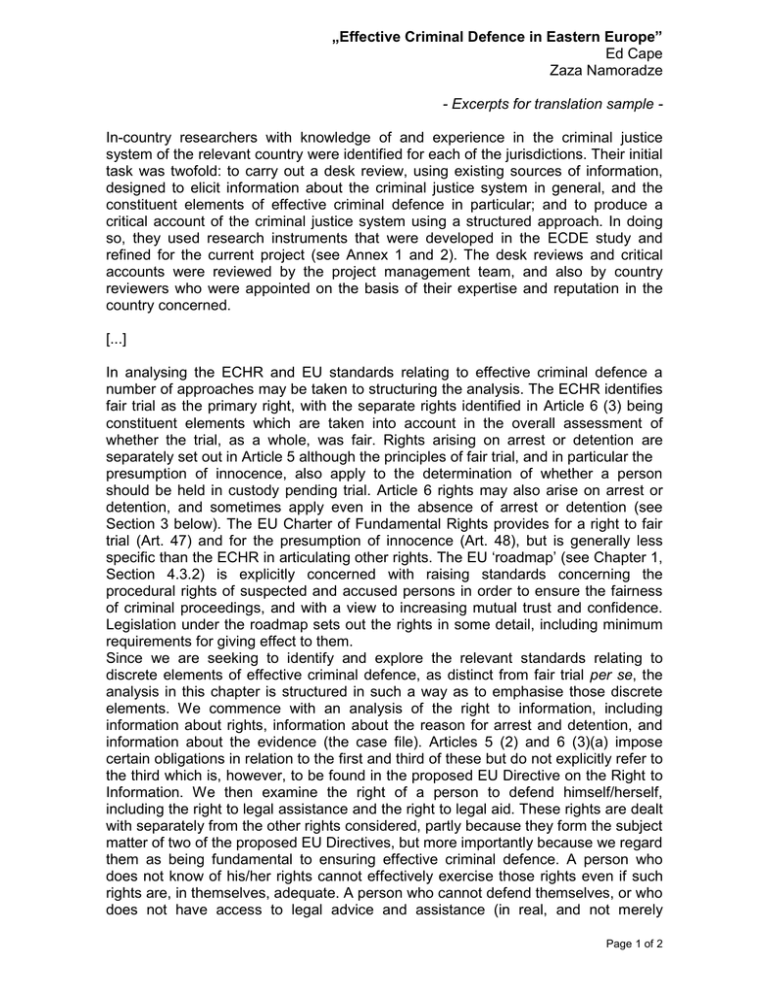
„Effective Criminal Defence in Eastern Europe” Ed Cape Zaza Namoradze - Excerpts for translation sample In-country researchers with knowledge of and experience in the criminal justice system of the relevant country were identified for each of the jurisdictions. Their initial task was twofold: to carry out a desk review, using existing sources of information, designed to elicit information about the criminal justice system in general, and the constituent elements of effective criminal defence in particular; and to produce a critical account of the criminal justice system using a structured approach. In doing so, they used research instruments that were developed in the ECDE study and refined for the current project (see Annex 1 and 2). The desk reviews and critical accounts were reviewed by the project management team, and also by country reviewers who were appointed on the basis of their expertise and reputation in the country concerned. [...] In analysing the ECHR and EU standards relating to effective criminal defence a number of approaches may be taken to structuring the analysis. The ECHR identifies fair trial as the primary right, with the separate rights identified in Article 6 (3) being constituent elements which are taken into account in the overall assessment of whether the trial, as a whole, was fair. Rights arising on arrest or detention are separately set out in Article 5 although the principles of fair trial, and in particular the presumption of innocence, also apply to the determination of whether a person should be held in custody pending trial. Article 6 rights may also arise on arrest or detention, and sometimes apply even in the absence of arrest or detention (see Section 3 below). The EU Charter of Fundamental Rights provides for a right to fair trial (Art. 47) and for the presumption of innocence (Art. 48), but is generally less specific than the ECHR in articulating other rights. The EU ‘roadmap’ (see Chapter 1, Section 4.3.2) is explicitly concerned with raising standards concerning the procedural rights of suspected and accused persons in order to ensure the fairness of criminal proceedings, and with a view to increasing mutual trust and confidence. Legislation under the roadmap sets out the rights in some detail, including minimum requirements for giving effect to them. Since we are seeking to identify and explore the relevant standards relating to discrete elements of effective criminal defence, as distinct from fair trial per se, the analysis in this chapter is structured in such a way as to emphasise those discrete elements. We commence with an analysis of the right to information, including information about rights, information about the reason for arrest and detention, and information about the evidence (the case file). Articles 5 (2) and 6 (3)(a) impose certain obligations in relation to the first and third of these but do not explicitly refer to the third which is, however, to be found in the proposed EU Directive on the Right to Information. We then examine the right of a person to defend himself/herself, including the right to legal assistance and the right to legal aid. These rights are dealt with separately from the other rights considered, partly because they form the subject matter of two of the proposed EU Directives, but more importantly because we regard them as being fundamental to ensuring effective criminal defence. A person who does not know of his/her rights cannot effectively exercise those rights even if such rights are, in themselves, adequate. A person who cannot defend themselves, or who does not have access to legal advice and assistance (in real, and not merely Page 1 of 2 „Effective Criminal Defence in Eastern Europe” Ed Cape Zaza Namoradze - Excerpts for translation sample theoretical terms) does not have access to effective criminal defence – however fair other aspects of the criminal process may be. [...] The ECHR does not use the term ‘criminal proceedings’. Article 6 (1) provides for the right to a fair and public hearing in the determination of ‘any criminal charge’, and similarly the presumption of innocence and the specific rights set out in Article 6 (3)(c) apply to everyone ‘charged with a criminal offence’. Thus the ECtHR has had to consider two separate, but interconnected questions – what is meant by ‘criminal’ and what is meant by ‘charge’. The need to determine whether an ‘offence’ (and proceedings in relation to that ‘offence’) is properly to be regarded as criminal, and the problems inherent in the task, is exemplified by the court’s judgment in Ozturk. [...] Clarification of Relevant Terminology: Arrest/apprehension and pre-trial arrest Moldovan legislation provides for two procedures where a person is deprived of his/ her liberty before trial: 1) Arrest/apprehension – in criminal cases, a person can be kept in custody for up to 72 hours before being brought before an investigative judge (pending an arrest warrant). This is similar to other former-Soviet systems, and the corresponding English term would be police custody. The test for apprehension is ‘reasonable suspicion’. In administrative offences, the general term of arrest/apprehension is three hours, except that those charged with an offence punishable with administrative arrest can be held for up to 24 hours before being brought before the judge. Only foreigners or stateless persons who break the rules for remaining in the country can be arrested by an administrative procedure for up to 72 hours. 2) Pre-trial arrest applies only to criminal cases. The arrest warrant is issued by the investigative judge, at the request of the prosecutor, for a period of up to 30 days, which can be extended to six months if the person is charged with an offence for which the maximum sentence is 15 years imprisonment, and up to 12 months if the person is charged with an offence for which the maximum sentence is 25 years or life imprisonment. Page 2 of 2


